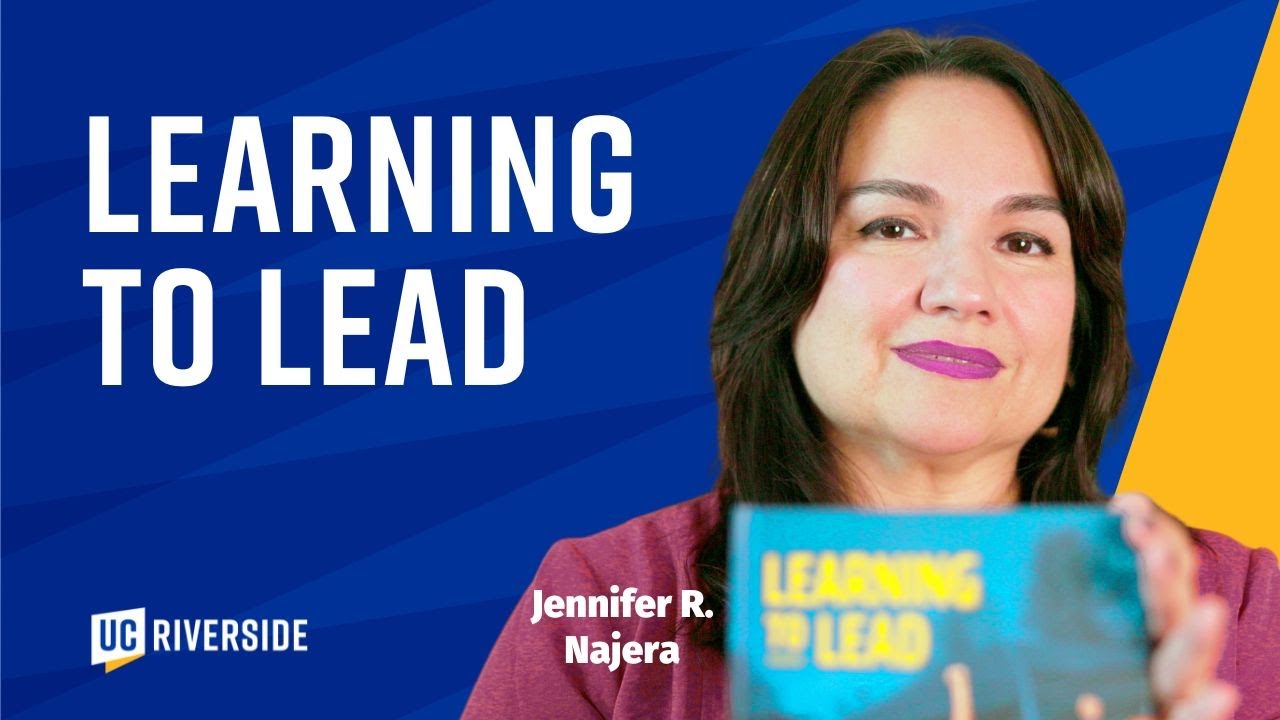
When Jennifer R. Nájera found herself teaching courses on immigration and education at UC Riverside, she realized the books listed in her syllabus did not fully capture the realities faced by many of her undocumented students.
One such story is that of Jorge, whose family returned to Mexico due to a family death. Jorge remained in the United States, wanting to complete his last five quarters at UCR. He soon found himself in a dark reality: alone, sleeping on a friend’s couch, and unemployed due to his lack of Social Security number. His father, Sergio, knew he needed to return to help his son.
Sergio crossed the Arizona desert where a human smuggler, known in Spanish as a coyote, abandoned him. Left to die and with his feet bleeding and blistered, Sergio was found by another smuggler, both eventually making it across the desert with the help of strangers who gave them water and food.
Meanwhile, Jorge anxiously waited in Riverside — in the midst of finals — to hear back from his father, who had last communicated four days prior.
In her new book, “Learning to Lead: Undocumented Students Mobilizing Education,” published Oct. 25 by Duke University Press, Nájera tells the stories of UCR students who learned to navigate life without U.S. citizenship — at times becoming advocates for themselves and for their peers.
“I wrote ‘Learning to Lead’ because of the undocumented students I was meeting in my classroom, students who had stories that I did not feel were being captured in the books we were reading,” said Nájera, an associate professor of ethnic studies who in 2015 authored “The Borderlands of Race: Mexican Segregation in a South Texas Town (University of Texas Press).
Story after story, Nájera captures narratives, struggles, and details that leave the reader with a heartache. She places those stories front and center, illustrating the very real impact immigration education policies have on students’ lives.
For years Nájera connected with undocumented students on campus in attempts to understand their lives and how not having U.S. citizenship impacted their employment possibilities, financial aid eligibility, and future career paths. Then she spent five years writing this book.
Nájera said most students in her study found out they were undocumented when they were getting ready to apply for college. “Learning to Lead” attempts to present the limitations and the possibilities of education to humanize undocumented communities. More than research anthropology, Nájera sees her work for this book as research acompañamiento, meaning accompaniment.
The book highlights UCR student organizations that provided critical support to undocumented students. Among those important groups is Providing Opportunities, Dreams and Education in Riverside, also known as PODER. PODER has been a pillar of support since 2008, when it was created by undocumented students and allies; the group created a series of workshops to educate students and their families about state and federal immigration laws, as well as the Obama-era Deferred Action for Childhood Arrivals, or DACA program.
Other organizations include La Unión Estudiantil de la Raza, or UER, a brotherhood created in 1992 with the intention of supporting Latinx/Chicanx men attending UCR and wanting to give back to their community. UER friends were crucial for students like Jorge, Nájera said. She also mentions Chicano Student Programs, or CSP, an office created 52 years ago to offer academic, cultural, and social support.
Those support structures, in addition to high school programs such as AVID and Puente, have positively changed the outcomes of UCR Latinx students, Nájera said.
Through conducting interviews and research, Nájera understood that these students’ stories started at home — the realities of immigration, job availability, and all the vulnerabilities undocumented people face.
“Parents had installed in them an understanding of legal status and their limitations for mobility, the role of police, and possible connections with ICE,” Nájera wrote. “However, they had also learned about resilience and advocacy, lessons that would compel them to move forward even when they faced challenges away from home, at the university. The undocumented education that their parents gave them established the foundation of two things: critical consciousness and empowerment.”
Meet Jennifer Nájera
UC Riverside book launch, February 2025 — Details coming soon!
Illegalized Learning & Leading: New Scholarship on Undocumented Youth Movements
Location: Arizona State University, California Center; 1111 S. Broadway, Suite 100 in downtown Los Angeles
Date/time: Friday, Nov. 8; 6-8:30 p.m.
Tickets: Free
Register: Illegalized Learning & Leading: New Scholarship on Undocumented Youth Movements
Praise for “Learning to Lead”
“Jennifer R. Nájera guides readers through deep storytelling and profound emotional connection to each of the undocumented college students featured in this beautiful book. The compelling stories of their full humanity demonstrate so powerfully that ‘education’ happens in families, life, community colleges, extracurricular spaces, organizing spaces, and in the classroom. It is a must-read for anyone interested in college students, education, or migration.” - Leisy J. Abrego, coeditor of "We Are Not Dreamers: Undocumented Scholars Theorize Undocumented Life in the United States"
“In this accessible, compelling, and analytically rich book Jennifer R. Nájera places families and communities at the center of undocumented youth activism. She shows that what happens inside the spaces and institutions of the university is inextricably connected to the broader familial and social context these young people are inhabiting. I do not know of another text that provides a campus-based qualitative study of undocumented student activism. This important and timely book is ideal for teaching in both undergraduate and graduate courses.” - Genevieve Negrón-Gonzales, coauthor of "The Latinx Guide to Graduate School"




